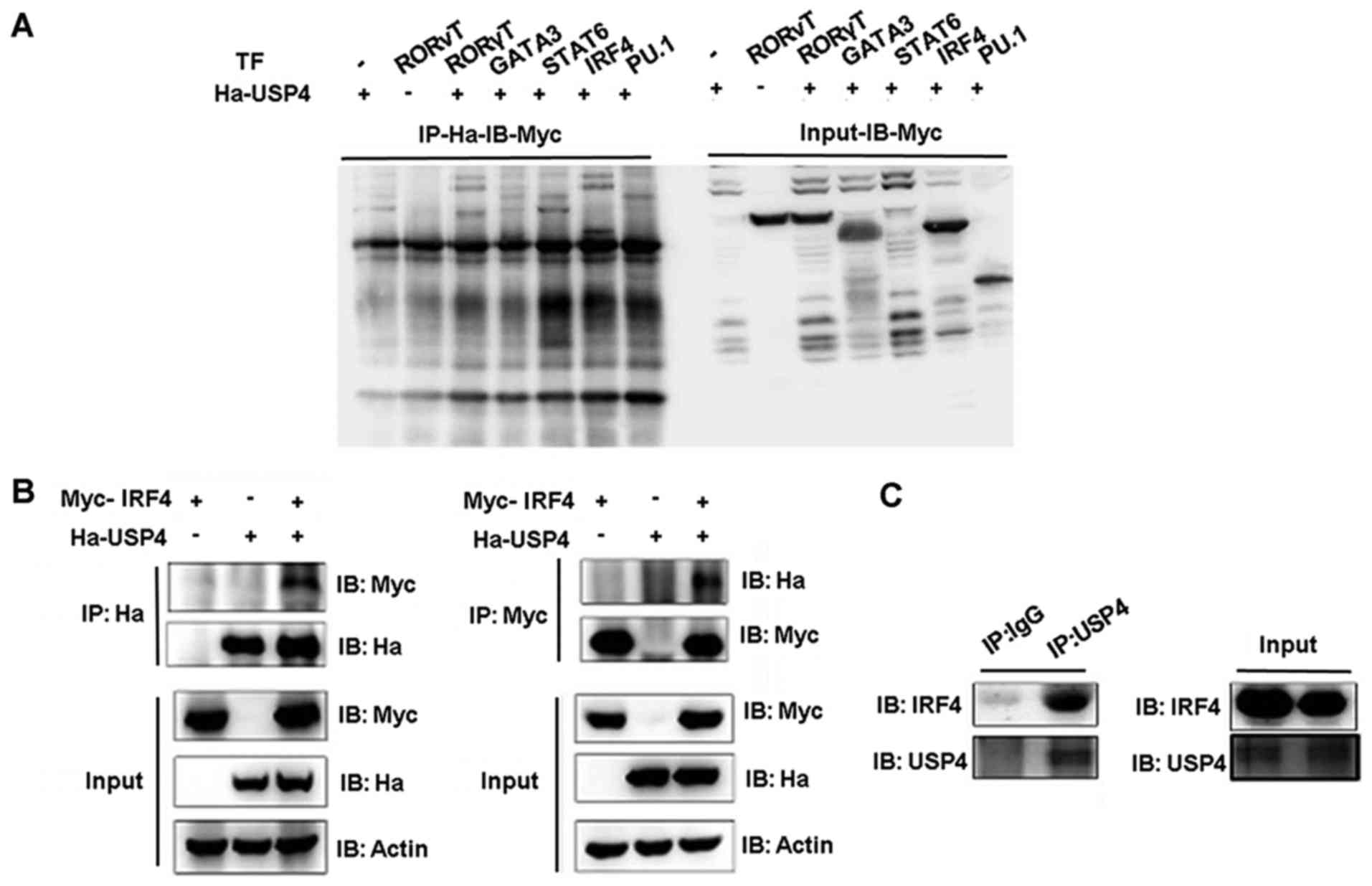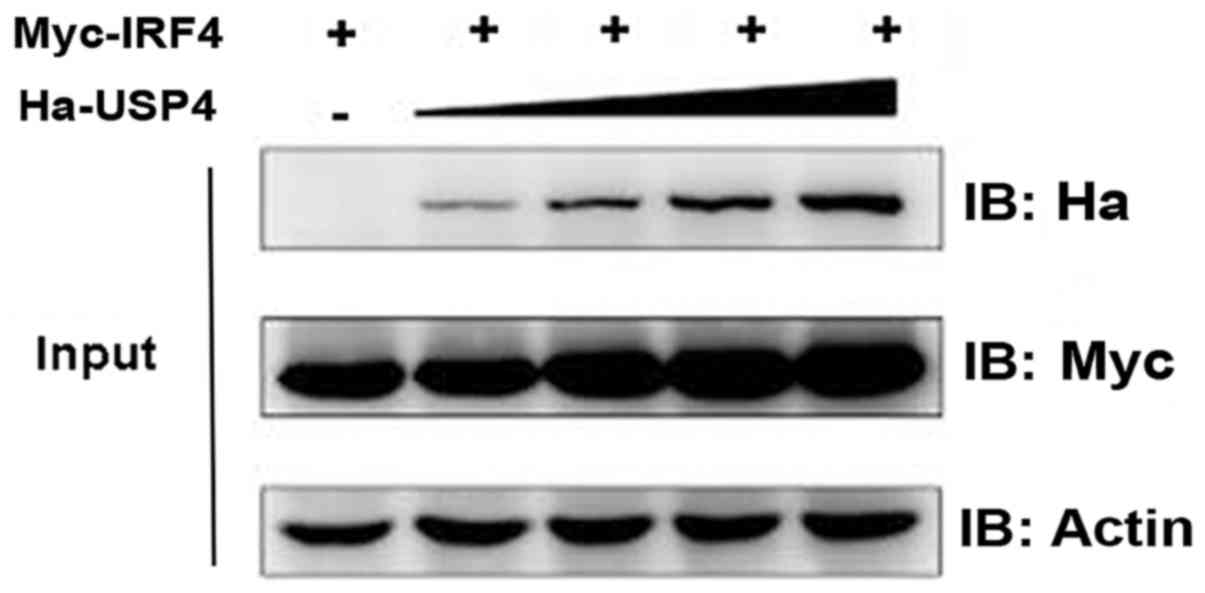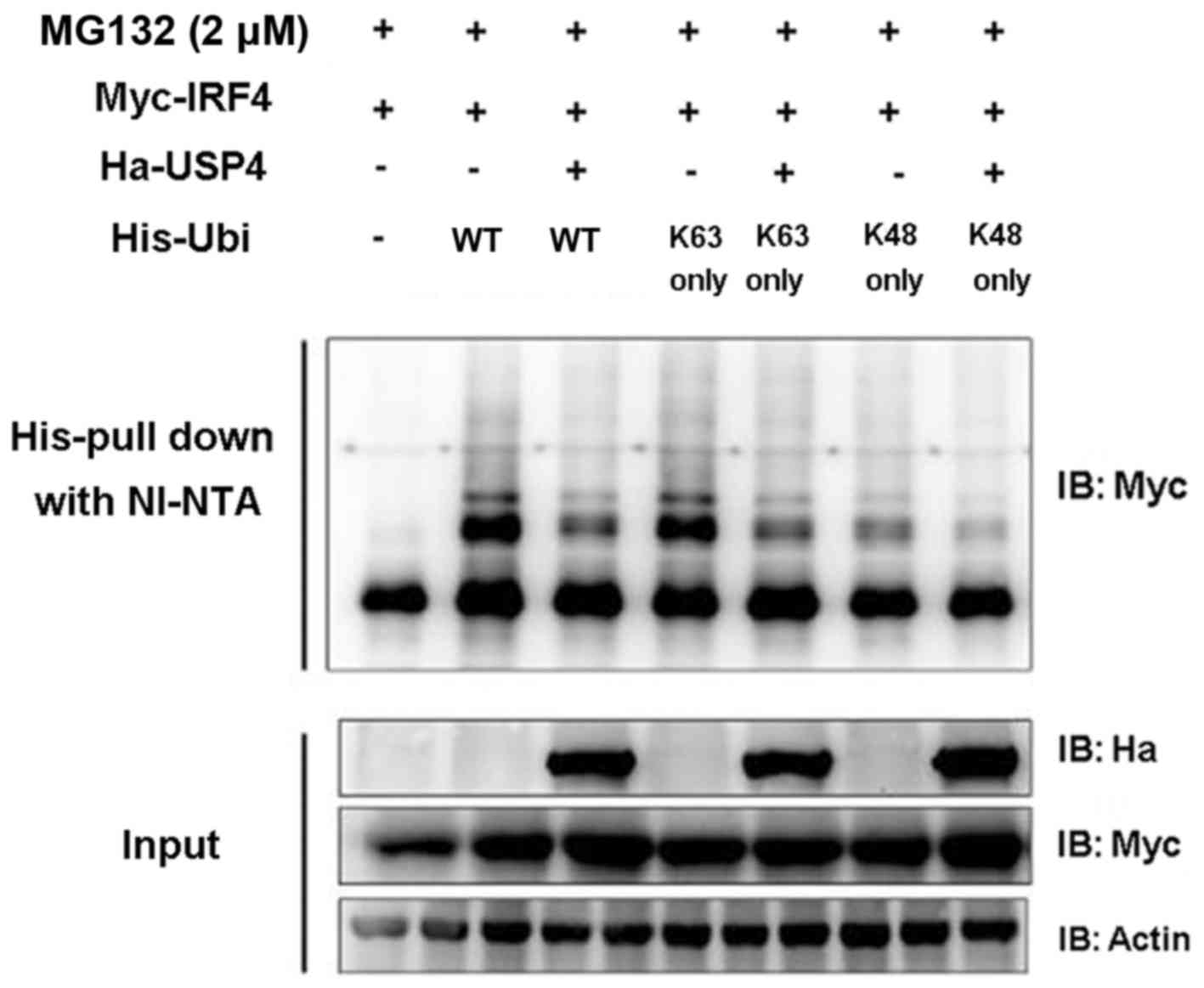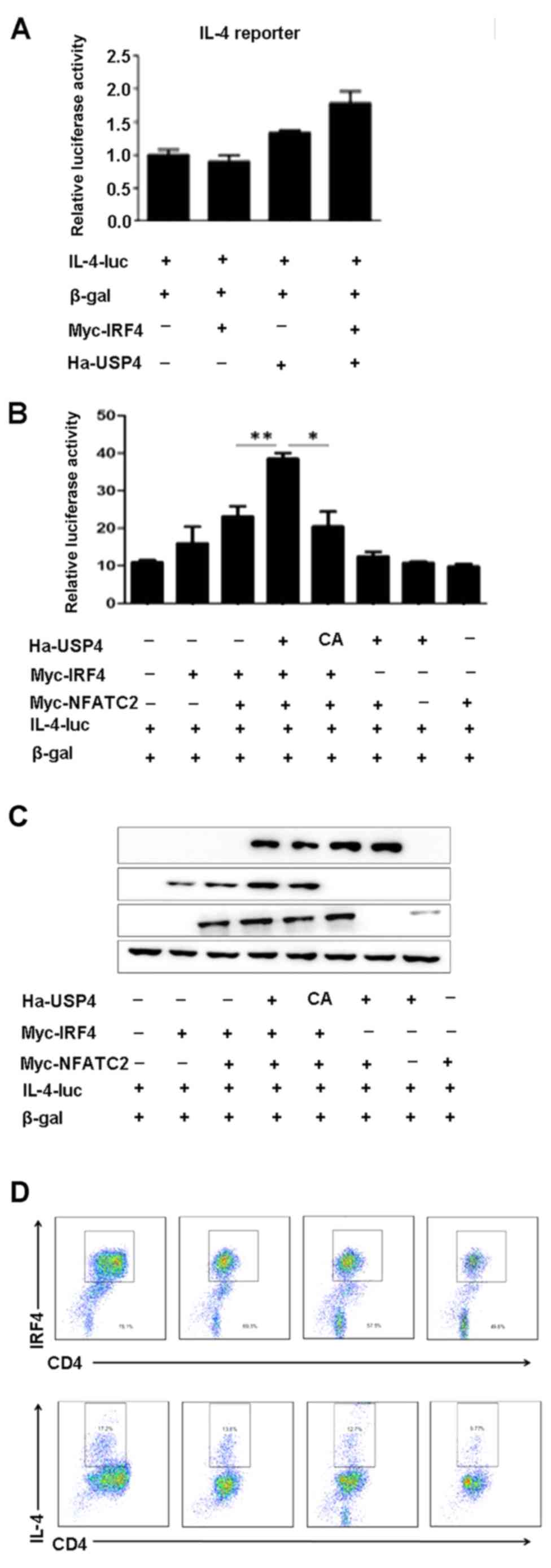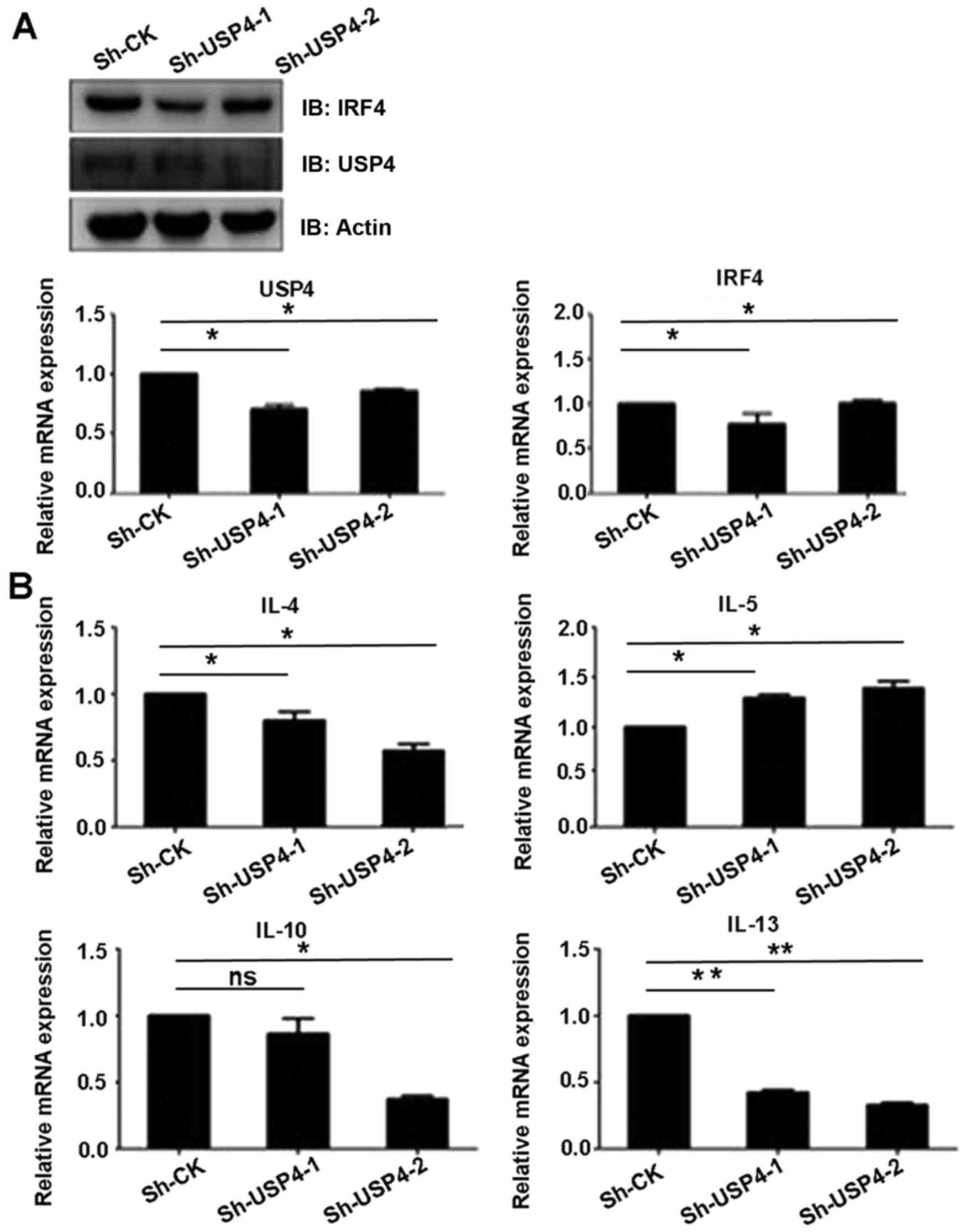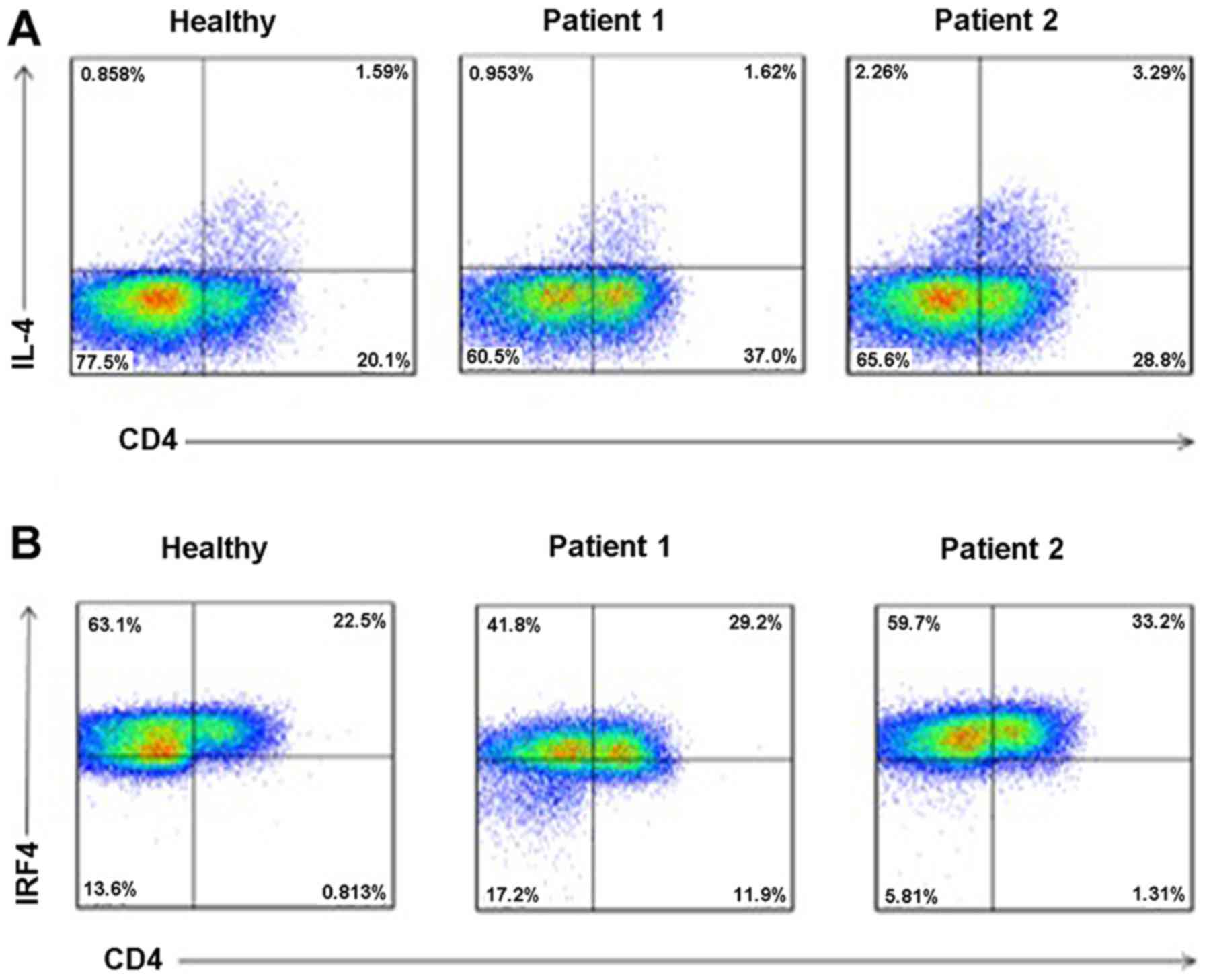|
1
|
Guilherme L and Kalil J: Rheumatic heart
disease: Molecules involved in valve tissue inflammation leading to
the autoimmune process and anti-S. pyogenes vaccine. Front Immunol.
4:352. 2013. View Article : Google Scholar : PubMed/NCBI
|
|
2
|
Chopra P and Gulwani H: Pathology and
pathogenesis of rheumatic heart disease. Indian J Pathol Microbiol.
50:685–697. 2007.
|
|
3
|
Rothenbühler M, O'Sullivan CJ, Stortecky
S, Stefanini GG, Spitzer E, Estill J, Shrestha NR, Keiser O, Jüni P
and Pilgrim T: Active surveillance for rheumatic heart disease in
endemic regions: A systematic review and meta-analysis of
prevalence among children and adolescents. Lancet Glob Health.
2:e717–e726. 2014. View Article : Google Scholar : PubMed/NCBI
|
|
4
|
Guilherme L, Köhler KF and Kalil J:
Rheumatic heart disease: Mediation by complex immune events. Adv
Clin Chem. 53:31–50. 2011. View Article : Google Scholar : PubMed/NCBI
|
|
5
|
Köhler G and Milstein C: Continuous
cultures of fused cells secreting antibody of predefined
specificity. 1975. Biotechnology. 24:524–526. 1992.PubMed/NCBI
|
|
6
|
Le Gros G, Ben-Sasson SZ, Seder R,
Finkelman FD and Paul WE: Generation of interleukin-4
(IL-4)-producing cells in vivo and in vitro: IL-2 and IL-4 are
required for in vitro generation of IL-4-producing cells. J Exp
Med. 172:921–929. 1990. View Article : Google Scholar : PubMed/NCBI
|
|
7
|
Hsieh CS, Heimberger AB, Gold JS, O'Garra
A and Murphy KM: Differential regulation of T helper phenotype
development by interleukins 4 and 10 in an alpha beta
T-cell-receptor transgenic system. Proc Natl Acad Sci USA.
89:6065–6069. 1992. View Article : Google Scholar : PubMed/NCBI
|
|
8
|
Faé KC, Oshiro SE, Toubert A, Charron D,
Kalil J and Guilherme L: How an autoimmune reaction triggered by
molecular mimicry between streptococcal M protein and cardiac
tissue proteins leads to heart lesions in rheumatic heart disease.
J Autoimmun. 24:101–109. 2005. View Article : Google Scholar : PubMed/NCBI
|
|
9
|
Rengarajan J, Mowen KA, McBride KD, Smith
ED, Singh H and Glimcher LH: Interferon regulatory factor 4 (IRF4)
interacts with NFATc2 to modulate interleukin 4 gene expression. J
Exp Med. 195:1003–1012. 2002. View Article : Google Scholar : PubMed/NCBI
|
|
10
|
Reyes-Turcu FE, Ventii KH and Wilkinson
KD: Regulation and cellular roles of ubiquitin-specific
deubiquitinating enzymes. Annu Rev Biochem. 78:363–397. 2009.
View Article : Google Scholar : PubMed/NCBI
|
|
11
|
Nijman SM, Luna-Vargas MP, Velds A,
Brummelkamp TR, Dirac AM, Sixma TK and Bernards R: A genomic and
functional inventory of deubiquitinating enzymes. Cell.
123:773–786. 2005. View Article : Google Scholar : PubMed/NCBI
|
|
12
|
Xiao N, Li H, Luo J, Wang R, Chen H, Chen
J and Wang P: Ubiquitin-specific protease 4 (USP4) targets TRAF2
and TRAF6 for deubiquitination and inhibits TNFα-induced cancer
cell migration. Biochem J. 441:979–986. 2012. View Article : Google Scholar
|
|
13
|
Fan YH, Yu Y, Mao RF, Tan XJ, Xu GF, Zhang
H, Lu XB, Fu SB and Yang J: USP4 targets TAK1 to downregulate
TNFα-induced NF-κB activation. Cell Death Differ. 18:1547–1560.
2011. View Article : Google Scholar : PubMed/NCBI
|
|
14
|
Zhang L, Zhou F, Drabsch Y, Gao R,
Snaar-Jagalska BE, Mickanin C, Huang H, Sheppard KA, Porter JA, Lu
CX, et al: USP4 is regulated by AKT phosphorylation and directly
deubiquitylates TGF-β type I receptor. Nat Cell Biol. 14:717–726.
2012. View
Article : Google Scholar : PubMed/NCBI
|
|
15
|
Zhang X, Berger FG, Yang J and Lu X: USP4
inhibits p53 through deubiquitinating and stabilizing ARF-BP1. EMBO
J. 30:2177–2189. 2011. View Article : Google Scholar : PubMed/NCBI
|
|
16
|
Zhu C, Zheng F, Sun T, Duan Y, Cao J, Feng
H, Shang L, Zhu Y and Liu H: Interaction of avian influenza virus
NS1 protein and nucleolar and coiled-body phosphoprotein 1. Virus
Genes. 46:287–292. 2013. View Article : Google Scholar :
|
|
17
|
Guilherme L, Cury P, Demarchi LM, Coelho
V, Abel L, Lopez AP, Oshiro SE, Aliotti S, Cunha-Neto E,
Pomerantzeff PM, et al: Rheumatic heart disease: Proinflammatory
cytokines play a role in the progression and maintenance of
valvular lesions. Am J Pathol. 165:1583–1591. 2004. View Article : Google Scholar : PubMed/NCBI
|
|
18
|
Mittrücker HW, Matsuyama T, Grossman A,
Kündig TM, Potter J, Shahinian A, Wakeham A, Patterson B, Ohashi PS
and Mak TW: Requirement for the transcription factor LSIRF/IRF4 for
mature B and T lymphocyte function. Science. 275:540–543. 1997.
View Article : Google Scholar : PubMed/NCBI
|
|
19
|
Eisenbeis CF, Singh H and Storb U: Pip, a
novel IRF family member, is a lymphoid-specific, PU.1-dependent
transcriptional activator. Genes Dev. 9:1377–1387. 1995. View Article : Google Scholar : PubMed/NCBI
|
|
20
|
Brass AL, Kehrli E, Eisenbeis CF, Storb U
and Singh H: Pip, a lymphoid-restricted IRF, contains a regulatory
domain that is important for autoinhibition and ternary complex
formation with the Ets factor PU.1. Genes Dev. 10:2335–2347. 1996.
View Article : Google Scholar : PubMed/NCBI
|
|
21
|
Gao Y, Lin F, Xu P, Nie J, Chen Z, Su J,
Tang J, Wu Q, Li Y, Guo Z, et al: USP22 is a positive regulator of
NFATc2 on promoting IL-2 expression. FEBS Lett. 588:878–883. 2014.
View Article : Google Scholar : PubMed/NCBI
|
|
22
|
Chen Z, Barbi J, Bu S, Yang HY, Li Z, Gao
Y, Jinasena D, Fu J, Lin F, Chen C, et al: The ubiquitin ligase
Stub1 negatively modulates regulatory T cell suppressive activity
by promoting degradation of the transcription factor Foxp3.
Immunity. 39:272–285. 2013. View Article : Google Scholar : PubMed/NCBI
|
|
23
|
Hou X, Zhang J, Chen C, Li B and Shi G:
Identification of the E3 deubiquitinase USP21 as a positive
regulator Of GATA3 in Asthma. Am J Respir Crit Care Med.
185:A64782012.
|
|
24
|
Ni Y, Tao L, Chen C, Song H, Li Z, Gao Y,
Nie J, Piccioni M, Shi G and Li B: The Deubiquitinase USP17
Regulates the Stability and Nuclear Function of IL-33. Int J Mol
Sci. 16:27956–27966. 2015. View Article : Google Scholar : PubMed/NCBI
|
|
25
|
Han L, Yang J, Wang X, Wu Q, Yin S, Li Z,
Zhang J, Xing Y, Chen Z, Tsun A, et al: The E3 deubiquitinase USP17
is a positive regulator of retinoic acid-related orphan nuclear
receptor γt (RORγt) in Th17 cells. J Biol Chem. 289:25546–25555.
2014. View Article : Google Scholar : PubMed/NCBI
|
|
26
|
Dikic I and Robertson M: Ubiquitin ligases
and beyond. BMC Biol. 10:222012. View Article : Google Scholar : PubMed/NCBI
|















